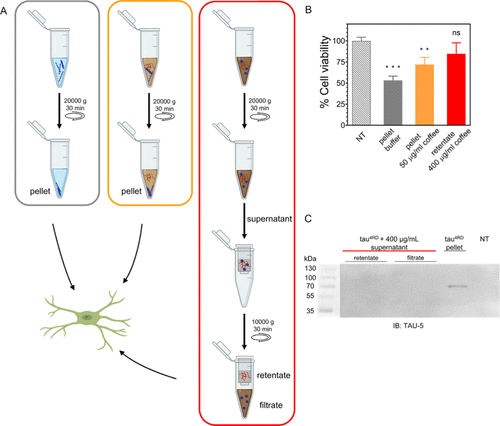A new study published in the “Journal of Agricultural and Food Chemistry” suggests espresso coffee provides a “protective activity” against neurodegenerative disorders.
Per the report this includes disorders such as Alzheimer’s disease.
An excerpt from the report’s abstract:
“In this work, we characterized by NMR the molecular composition of the espresso coffee extract and identified its main components. We then demonstrated with in vitro and in cell experiments that the whole coffee extract, caffeine, and genistein have biological properties in preventing aggregation, condensation, and seeding activity of the repeat region of tau.”
Note: “Tauopathies is the term used to define a set of neurodegenerative disorders with symptoms of dementia and parkinsonism”
The report originates from Italy and is co-authored by eight scientists from the University of Verona.
From the discussion section, the report states:
“Here, we show that aggregation of the tau protein is modulated by espresso coffee extract and some of its components, at both concentrations used in the experiments (i.e., 50 and 400 μg/mL). Intraneuronal tau concentration has been estimated to be about 2 μM, (57) 25 times less than what we have used in our experiments.”
To establish the results the team ran a series of tests and analyses based on Arabica coffee from South America and Robusta coffee from Africa and Southwest Asia.

The authors note that espresso specifically and caffeine in general should be taken in moderation.
Of course this is just one report from one University and I’m sure will be subject to scrutiny and peer review to validate and possibly challenge any of the findings — as is normally the case.
RELATED:
Best automatic espresso machine for small offices, break rooms, start-ups
Given this is a published study in a Journal the material could be heavy reading for non-scientists and non-biologists like myself. In any case, it might be an interesting one to look at for those interested in the subject of espresso and coffee.

